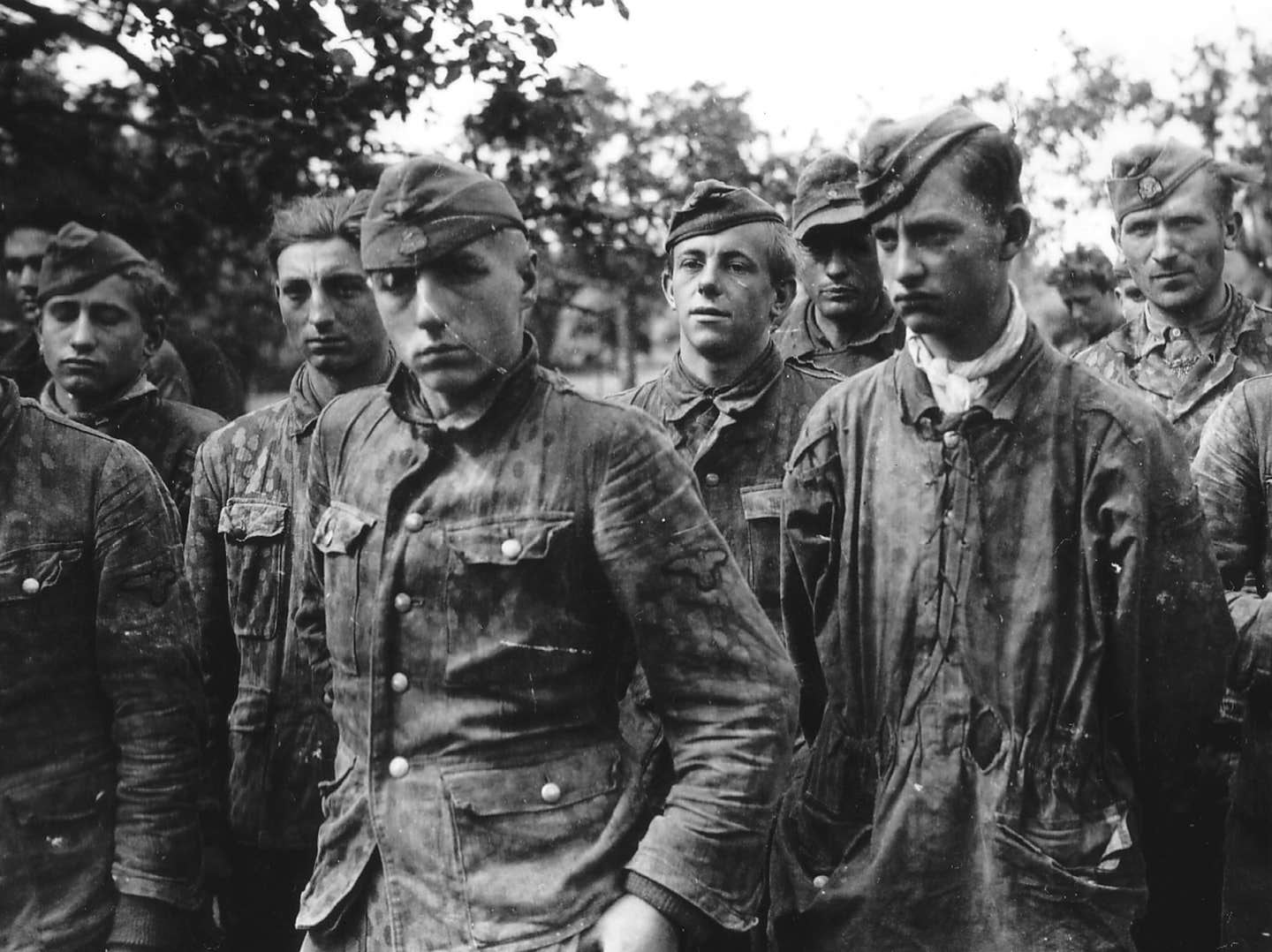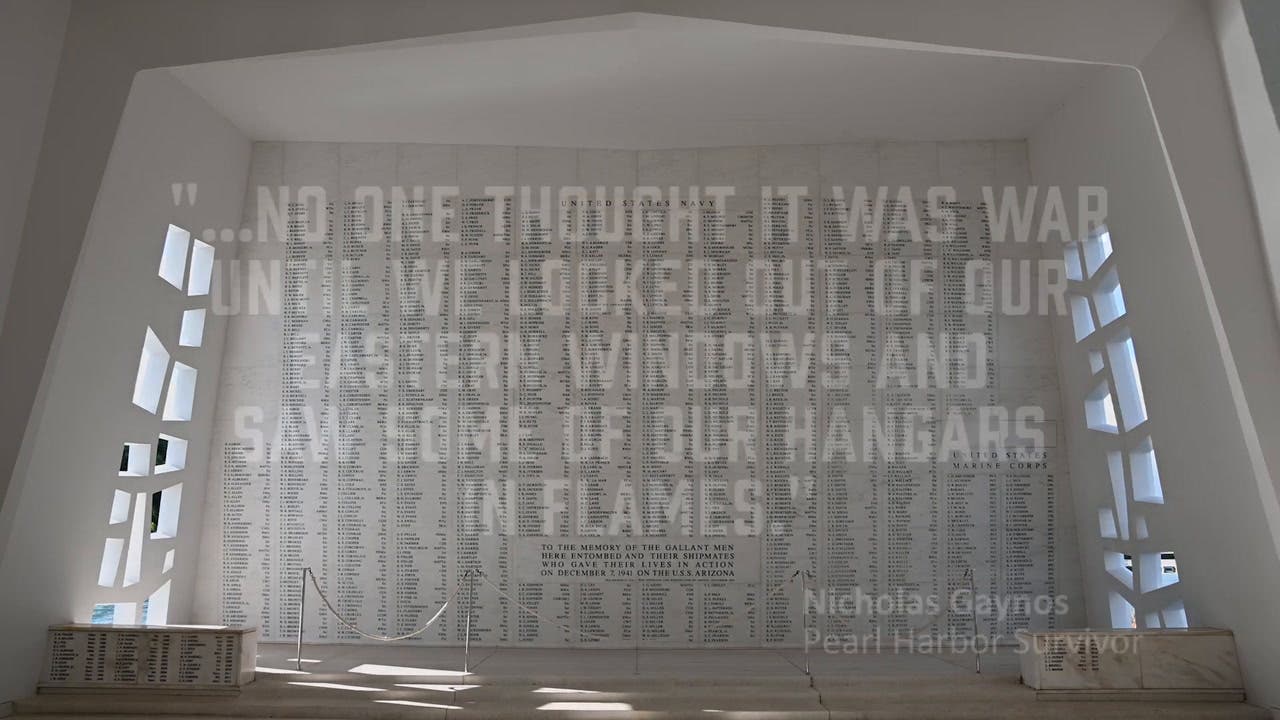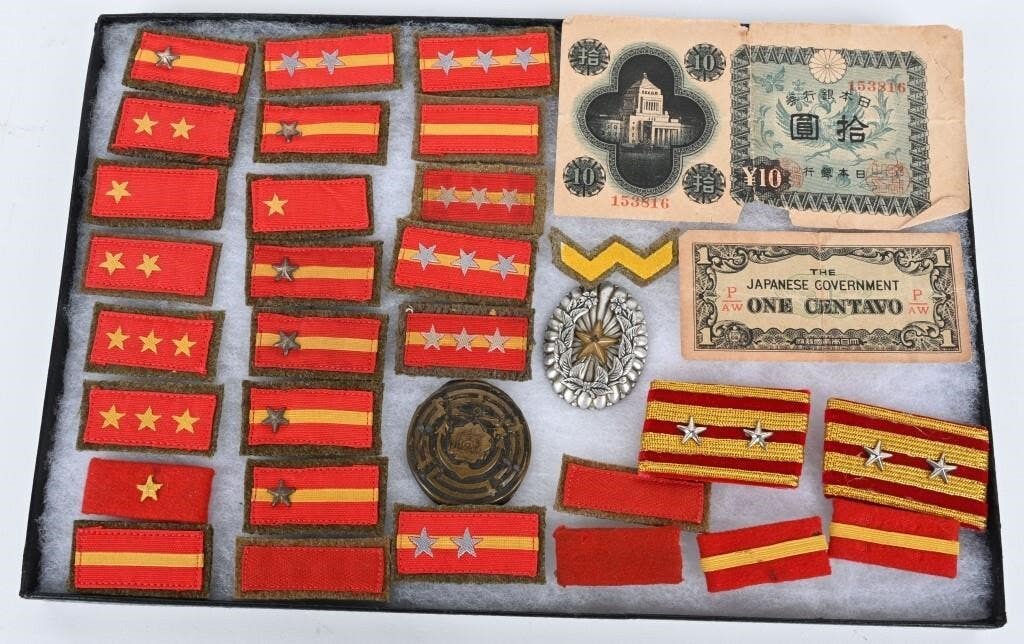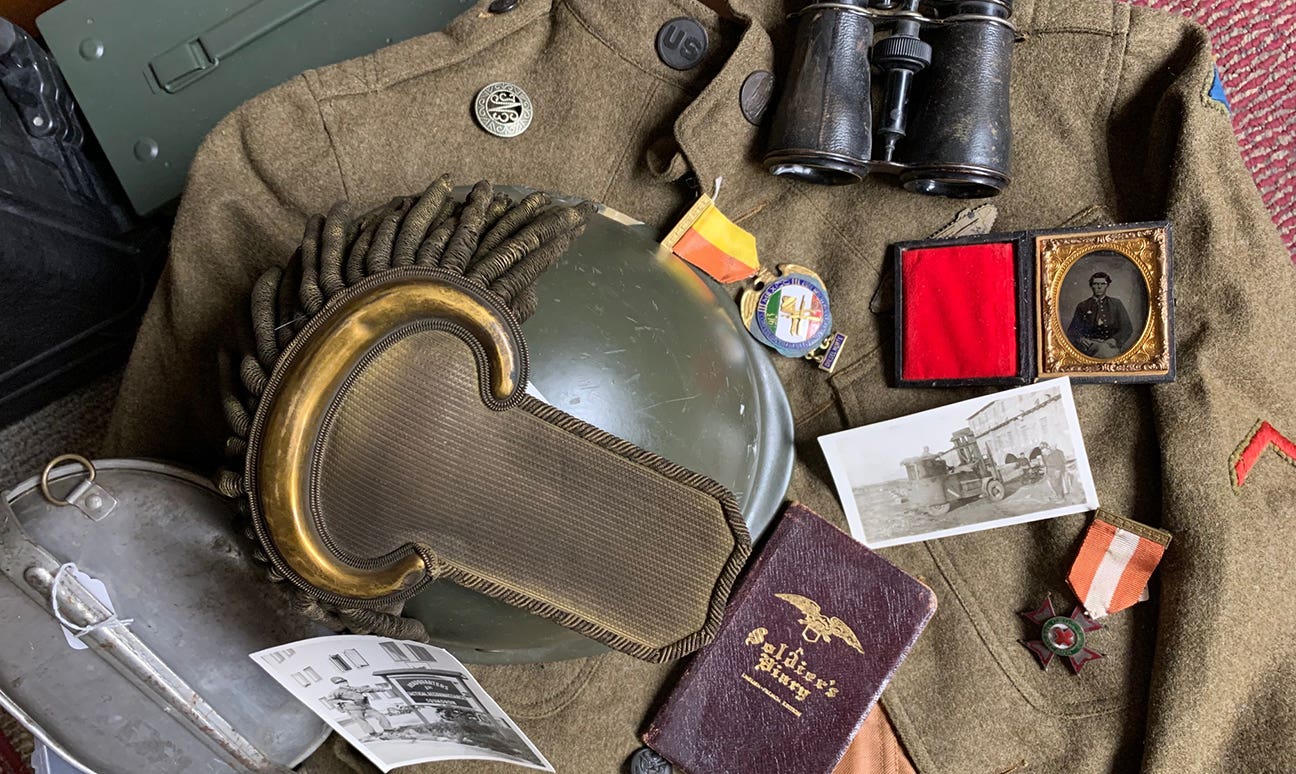DESERTION “IN TIMES OF WAR”
In military terminology, desertion is the abandonment of a duty or post without permission and is done with the intention of not returning. We have been hearing a lot about desertion, lately, as it…
In military terminology, desertion is the abandonment of a duty or post without permission and is done with the intention of not returning. We have been hearing a lot about desertion, lately, as it relates to the case of Sergeant Beaudry Robert "Bowe" Bergdahl who deserted his post in Afghanistan on June 30, 2009 — even President Trump has tweeted about it, suggesting that Bergdahl should be given a death sentence. At the time of this writing, deliberations on Bergdahl’s fate are on-going. All of this talk made me wonder about desertions from the US Military—the only one I could remember was acted out in a movie when I was a kid—“The Execution of Private Slovik.” Surely that wasn’t the last “high-profile” case? Or was it?
A LONG HISTORY OF DESERTION
My brief research indicates that the U.S. Army has prosecuted about 1,900 cases of desertion since 2001. Apparently, however, this data reflects how rarely the military takes desertion cases to court. The Associated Press asserted, “tens of thousands of soldiers fleeing the service in the face of deadly combat, long and multiple deployments in Iraq and Afghanistan and strains on military families.” They cited a report based on Army data that shows that “More than 20,000 soldiers have been dropped from the rolls as deserters since 2006.”
Of those 1,900 cases prosecuted since 2001, about half the soldiers pleaded guilty to deserting their post. Another 78 went to trial and were convicted of desertion. According to the 2012 edition of the United States Manual for Courts-Martial, “Any person found guilty of desertion or attempt to desert shall be punished, if the offense is committed in time of war, by death or such other punishment as a court-martial may direct, but if the desertion or attempt to desert occurs at any other time, by such punishment, other than death, as a court-martial may direct.”
For Sgt. Bergdahl, this means the maximum punishment could be death. While this sounds harsh, actual executions of US military personnel for desertion are rare. Since the Civil War when desertion was a huge problem (it is estimated that the Union Army lost about 200,000 to desertion while the Confederacy lost about 100,000), only one service member has been executed for desertion: Pvt. Eddie Slovik.
The Execution of Private Slovik
Of the more than 21,000 American soldiers given varying sentences for desertion during World War II, only 49 were death sentences. And of those, Edward Donald "Eddie" Slovik was the only one who was actually executed.
Born in 1920, to the Polish-American family of Josef and Anna Slowikowski, Eddie grew up in the streets of Detroit, Michigan. Police arrested Eddie when he was just 12 years old after he and some friends broke into a foundry to steal brass. Over the next five years, police arrested him for several incidents that included petty theft, breaking and entering, and disturbing the peace. In October 1937, the court sent Eddie to prison, though he gained parole in the following September. But just a few months later, in January 1939, Eddie was back in prison after stealing and crashing a car with two friends while on a drunken bender.
Slovik gained parole again in April 1942. After obtaining a job at Montella Plumbing and Heating in Dearborn, Michigan, it appeared Eddie was turning around his life. At Montella, he met a bookkeeper, Antoinette Wisniewski. In November 1942, the two wed and moved in with her parents.
Even though Slovik’s criminal record led to a 4-F (unfit for duty) classification for the U.S. military, he was reclassified as 1-A (fit for duty) shortly after the couple's first wedding anniversary. The Army drafted him the following year.
Slovik reported to Camp Wolters in Texas for basic military training on January 24, 1944. In August, the Army sent him to France as a replacement in Company G, 109th Infantry Regiment, 28th Infantry Division.
Once in France, Slovik, along with 11 other replacements assigned to Company G, came under an artillery barrage while en route to their outfit. Slovik and Private John Tankey, a friend he met during basic training, became separated from the detachment after they took cover. This was the point in time when Slovik later stated he found he "wasn't cut out for combat."
Rather than attempting to find the other men of the replacement detachment, Slovik and Tankey willingly approached a Canadian military police unit. The pair of infantrymen remained with Canadians for the next six weeks. Tankey wrote to their regiment to explain their absence before he and Slovik reported to their unit for duty on October 7, 1944. Because the US Army's rapid advance through France had been so swift, it was not uncommon for replacements to have problems finding their assigned units. Solvik and Tankey avoided any charges for their six weeks of unaccounted status.
A day later, however, Slovik told his company commander, Captain Ralph Grotte, that he was “too scared” to serve in a frontline infantry company. He asked to be reassigned to a rear-area unit, but not before threatening that he would run away if assigned to a rifle unit. Grotte refused Slovik's request. He sent Slovik to the front line to join a rifle platoon.
Twenty-four hours later, Slovik made good on his promise and deserted. His old buddy Tankey, attempted to convince Slovik to stay, but Slovik insisted his “mind was made up.” He walked several miles in the direction of the rear when he encountered an enlisted cook of a headquarters detachment. Slovik handed the cook a note that stated:
“I, Pvt. Eddie D. Slovik, 36896415, confess to the desertion of the United States Army. At the time of my desertion, we were in Albuff in France. I came to Albuff as a replacement. They were shelling the town and we were told to dig in for the night. The following morning they were shelling us again. I was so scared, nerves and trembling, that at the time the other replacements moved out, I couldn’t move. I stayed there in my foxhole till it was quiet and I was able to move. I then walked into town. Not seeing any of our troops, so I stayed overnight at a French hospital. The next morning I turned myself over to the Canadian Provost Corp. After being with them six weeks I was turned over to American M.P. They turned me loose. I told my commanding officer my story. I said that if I had to go out there again I'd run away. He said there was nothing he could do for me so I ran away again AND I'LL RUN AWAY AGAIN IF I HAVE TO GO OUT THERE.
— Signed Pvt. Eddie D. Slovik A.S.N. 36896415”
With the note in hand and Slovik “in custody,” the cook reported to his company commander. A military policeman was summoned who read the note before urging Slovik to destroy it so he wouldn’t have to be taken into custody. Undeterred, Slovik refused.
The MP then took the deserter to Lt. Col. Ross Henbest who also urged the private to tear up the confession and return to his unit. When Slovik refused again, Henbest ordered him to write on the reverse of the note that he fully understood the legal consequences of deliberately incriminating himself and that the note would be used as evidence against him in a court-martial. After Slovik wrote his addition on the reverse of the note, Henbest ordered him into custody and confined to the stockade.
Slovik received a third and final opportunity to rejoin his unit and avoid punishment when the divisional judge advocate, Lieutenant Colonel Henry Sommer, asked him to recant. Sommer even went so far as to offer a transfer to a different infantry regiment where no one would know of his past and he could start with a "clean slate." Slovik simply replied, "I've made up my mind. I'll take my court martial."
Slovik was charged with desertion to avoid hazardous duty (the 28th was about to attack in the Hürtgen Forest). A court-martial convened on November 11, 1944. At the end of the day (during which Slovik elected not to testify in his own defense), the court’s nine officers found Slovik guilty and sentenced him to death. Major General Norman Cota, the 28th Division’s commander, reviewed and approved the sentence. Cota later recalled, "Given the situation as I knew it in November 1944, I thought it was my duty to this country to approve that sentence. If I hadn't approved it — if I had let Slovik accomplish his purpose — I don't know how I could have gone up to the line and looked a good soldier in the face."
Despite receiving a personalized letter from Slovik pleading for leniency, the Supreme Allied commander, General Dwight D. Eisenhower, confirmed the execution order on December 23, 1944. On the morning of January 31, 1945, military policemen led the unrepentant Slovik before a firing squad near the village of Sainte-Marie-aux Mines. Reportedly, Slovik said to some of his escorts, "They're not shooting me for deserting the United States Army. Thousands of guys have done that. They just need to make an example out of somebody and I'm it because I'm an ex-con. I used to steal things when I was a kid, and that's what they are shooting me for. They're shooting me for the bread and chewing gum I stole when I was 12 years old."
They used web belts to strap Slovik to 6x6 post in front of a high masonry wall as a 12-man firing squad watched. Hand-picked from the 109th Infantry Regiment, the dozen stood armed with M1 rifles, each loaded with just one bullet, though one was a blank.
On the command of "Fire" at 10:04 a.m., eleven bullets struck Slovik,— at least four were fatal. The wounds ranged from high in the neck region out to the left shoulder, over the left chest, and under the heart. One bullet was in the left upper arm. At least four appeared to be fatal, though an Army physician determined Slovik had not been immediately killed. Before the firing squad's rifles were reloaded in preparation for another volley, Slovik died — the last American to be executed for desertion.
DESERTIONS SINCE WWII
Desertion rates in wartime vary greatly, but generally, have been lower in peacetime. Interestingly, the end of hostilities has been accompanied by a dramatic increase in desertion! After almost every war since WWI, the desertion rate doubled! However, the swifter to victory and more popular the conflict, the lower the desertion rate has been.
During the Korean War, short terms of service and the rotation system helped keep desertion rates down to 1.4 percent of the armed forces during 1951 and to 2.2 percent (31,041) in 1953. In 1974, the Defense Department reported that between 1 July 1966 and 31 December 1973, there had been 503,926 incidents of desertion in all services during the Vietnam War.
According to the Pentagon, more than 5,500 military personnel deserted during 2003–2004, following the invasion and occupation of Iraq. By May 2006, that number had grown to about 8,000. Just a year later, the Army reported about nine in every 1,000 soldiers — or 4,698 — deserted during the fiscal year 2007, compared to nearly seven per 1,000 a year earlier (the Air Force touted the fewest number of deserters — with no more than 56 bolting each year between 2002 and 2007 years). No U.S. serviceman has received more than 24 months imprisonment for desertion or missing movement post-September 11, 2001.
THE CASE OF BOWE BERGDAHL
Sergeant Bergdahl is charged under two sections of the Uniform Code of Military Justice: Article 85 (Desertion) which carries a maximum penalty of five years in prison and Article 99 (Misbehavior before the enemy) which could be punished by death had the case been referred as capital. In Bergdahl's case, though, the death sentence was not requested because the defense secured a lesser included offense (desertion). Therefore, Bergdahl faces a maximum sentence of up to life in prison. In addition, he also faces the possibility of a dishonorable discharge, reduction in rank, and forfeiture of the pay he was owed while in captivity if he is tried and convicted. So, despite President's Trump's 2015 suggestion that the deserter "should face the death penalty," the Uniform Code of Military Justice does not support this. Bowe Bergdahl does not face a death sentence.
But the latter charge of "Misbehavior before the enemy" does carry a very stiff penalty than — more than simple desertion. Applying that charge does send a strong message to anyone contemplating similar action.
A charge of "Misbehavior before the enemy" is rather uncommon. Though nearly 500 "Misbehavior before the enemy" cases were tried between 1942 and 1945, the military's use of it since then appears to have dwindled. A search of legal databases will turn up only a few misbehavior cases since 2001 when fighting began in Afghanistan and then in Iraq, less than two years later. In contrast, statistics reveal that the Army prosecuted nearly 1,900 desertion cases between 2001 and the end of 2014.
So what led to this high — and rather unusual — charge against Sgt. Bergdahl? It all began in May 2009, when his unit deployed to Afghanistan. Sent to an outpost named Mest-Malak in Afghanistan, Bergdahl's unit was to conduct counterinsurgency operations.
While at Mest-Malek, Bergdahl began learning to speak Pashto. According to fellow soldiers, the NCO "began to gravitate away from his unit", spending "more time with the Afghans than he did with his platoon." Two days after his unit suffered its first casualties and three days before he deserted, Bergdahl sent an e-mail to his parents:
mom, dad
The future is too good to waste on lies. And life is way too short to care for the damnation of others, as well as to spend it helping fools with their ideas that are wrong. I have seen their ideas and I am ashamed to even be American. The horror of the self-righteous arrogance that they thrive in. It is all revolting …Three good sergeants had been forced to move to another company … and one of the biggest shit bags is being put in charge of the team ... My battalion commander [was] a conceited old fool ... In the US army you are cut down for being honest... but if you are a conceited brown nosing shit bag you will be allowed to do whatever you want, and you will be handed your higher rank ... The system is wrong. I am ashamed to be an American…I am sorry for everything here. These people need help, yet what they get is the most conceited country in the world telling them that they are nothing and that they are stupid, that they have no idea how to live … We make fun of them in front of their faces, and laugh at them for not understanding we are insulting them…I am sorry for everything. The horror that is America is disgusting…
Before Bergdahl abandoned his unit, he read a reply from his father:
OBEY YOUR CONSCIENCE!
Dear Bowe, In matters of life and death, and especially at war, it is never safe to ignore ones' conscience. Ethics demands obedience to our conscience. It is best to also have a systematic oral defense of what our conscience demands. Stand with like-minded men when possible. Dad.
On June 30, 2009, Sgt. Beaudry Bergdahl crossed the wire and walked away from his unit. He was later captured and held by the Taliban until exchanged for five of their imprisoned comrades nearly five years later. More than 70 years ago, the execution of Privat Slovik was intended to send a message to all military personnel. Today, Bowe Bergdahl's fate — and any message to military personnel — is in the hands of a US military court.
Preserve the Memories,
John Adams-Graf
Editor, Military Trader and Military Vehicles Magazine
John Adams-Graf ("JAG" to most) is the editor of Military Trader and Military Vehicles Magazine. He has been a military collector for his entire life. The son of a WWII veteran, his writings carry many lessons from the Greatest Generation. JAG has authored several books, including multiple editions of Warman's WWII Collectibles, Civil War Collectibles, and the Standard Catalog of Civil War Firearms. He is a passionate shooter, wood-splitter, kayaker, and WWI AEF Tank Corps collector.






